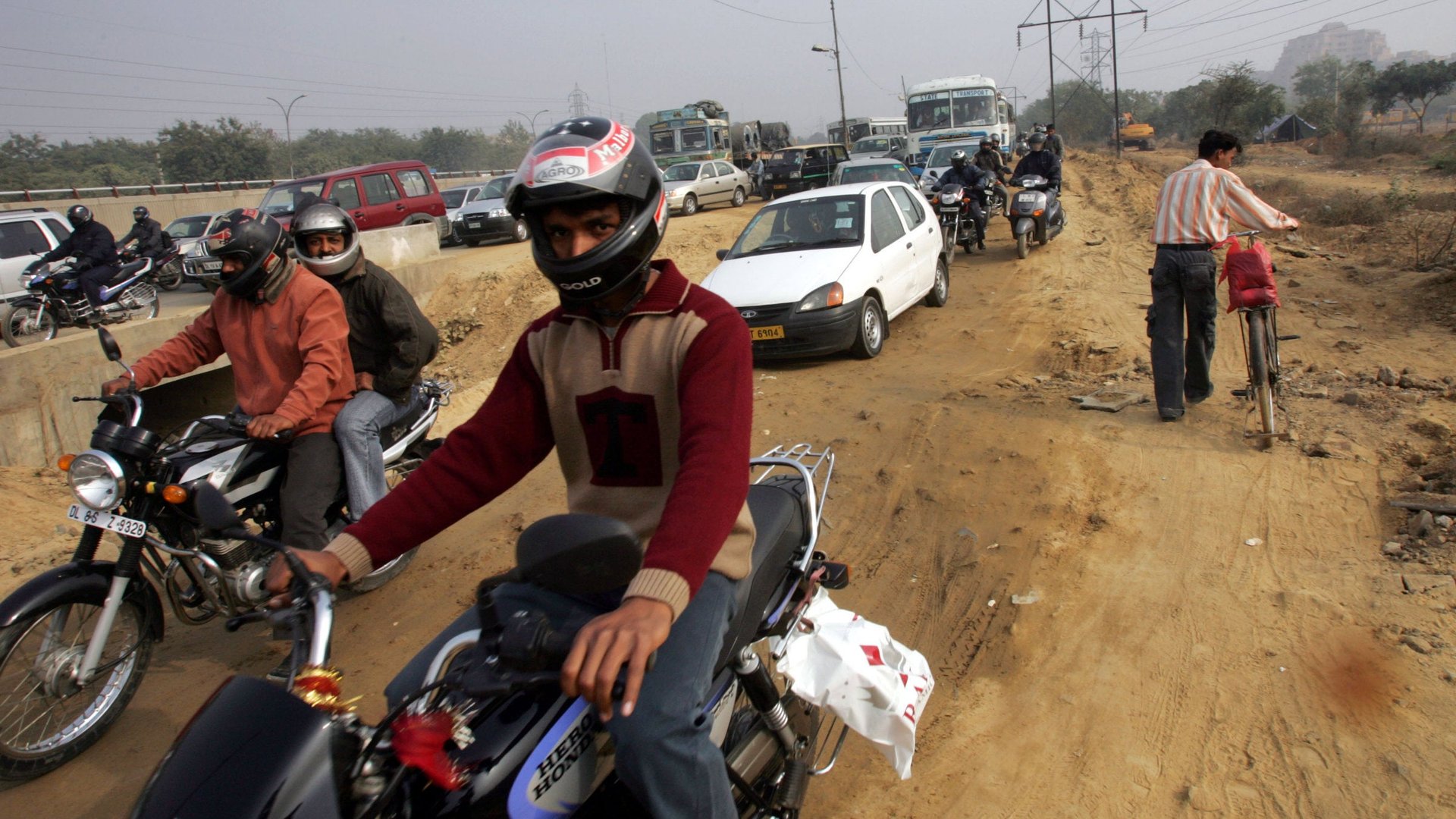Indians want law and order. But can they wait in line and stop at red lights?
The tragic gang rape in New Delhi has made many Indians sit up and wonder about the state of the country’s law-and-order machinery. Legitimate questions have been raised the workings of Indian police, courts, penal codes, sentencing norms, and forensic methodologies.


The tragic gang rape in New Delhi has made many Indians sit up and wonder about the state of the country’s law-and-order machinery. Legitimate questions have been raised the workings of Indian police, courts, penal codes, sentencing norms, and forensic methodologies.
Last week, a judicial commission appointed to look at rape laws in India delivered what appears to be a wide-ranging, well-received report, completed in what must be a national record time for an exercise of this nature. The people—or in any case the people who can voice their opinions loud enough to get noticed by the national media—seem to want change. And they appear—albeit at uncertain pace—to be getting it.
Yet is Indian society really ready for a new, strict, no-excuses law-and-order mechanism? Are we ready to deal with the inefficiencies that come with a universally law-abiding law society?
This question is worth asking because there are certain aspects of a modern law abiding society—of the type we Indians themselves cite lovingly in Singapore or Hong Kong or in Scandinavia—that directly run up against India’s national obsession with “somehow getting things done.”
For generations, perhaps centuries, this obsession has helped Indians get by in an environment where they have had very few reliable institutions. More recently certain aspects of this obsessions has been packaged into a philosophy called jugaad, which loosely translates into the creativity or workaround to get a job done or a problem fixed. More than one book has been written about how “jugaad” is a management method worthy of celebration. Jugaad evangelists talk about how this is what makes Indian so good at innovation, engineering and entrepreneurship.
The problem with the jugaad approach, however, is that in as much as it thrives in an environment bereft of institutions, it also prevents institutions from being formed.
So when bicycle lanes are laid out in Delhi, they are almost immediately overrun by motorcyclists and auto rickshaw drivers trying to bypass traffic snarls. There’s an example of little jugaad that makes the entire idea of bicycle lanes pointless.
When the Indian Railways launched a new website to book train tickets in July 2011, it was immediately besieged by travel agents and illegal touts. Touts use every trick in the book to bypass website controls. There’s a little jugaad that makes the site unusable for normal, law-abiding customers.
In many cases, jugaad is nothing more than a euphemism for bribery, influence peddling and some light criminality. Often these jugaad channels are maintained in cahoots with the very institutions that are supposed to shut them down. As these books and business management articles on jugaad reflect, many Indians are quite proud of their ability to shimmy their way past shortages, constraints and, let’s be frank, regulation.
But this obsession with somehow getting things done, skirting inconvenient regulation, and opting for convenience over conformance has dire consequences for India’s law-and-order system. And unless many, if not most, Indians are willing to relinquish this obsession for efficiency, real law-and-order reform is unrealistic.
This is because many elements of the jugaad way of life involves law and order operatives looking the other way. So when you drive up the wrong side of the road in Delhi in order to avoid traffic, you are actually hoping to not get caught at all, or get by with a light bribe.
In fact, buying or selling real estate anywhere in India is almost always an exercise in tax evasion and, often, money laundering. While only a small proportion of the transaction is documented, the majority of the purchase price changes hands in the form of “black” or undocumented cash. Meanwhile, at the end of the financial year, droves of Indian office-goers approach pharmacies that write them fake receipts for medicines in exchange for a small commission or even for free. These receipts are then submitted along with tax returns. (A certain amount of spending on medicines is tax deductible in India.)
What does all this have to do with making India more law-abiding?
You can’t bribe a public official, such as a traffic policeman or a tax inspector, without weakening incentives for law-and-order’s legitimacy. It is foolishness to expect the police force to fiercely protect citizens, while being prepared to overlook mild traffic violations.
By under-reporting property prices and misreporting property ownership data, you not only evade taxes, but also make it impossible for administrators to plan cities and make them safer.
By evading taxes with institutional alacrity, you take away an already over-stretched government’s ability to fund reform. (Not to mention that you diminish the moral imperative on the government’s part to listen to their citizens.)
Also being a law abiding society can be tiresome and, in many ways, inefficient. Why should you stop at a red light at 3 a.m. in the middle of a deserted city center? Why stand in line at the local government office when a little bribe or a well-placed phone call can get you in through the back door?
Standing in lines, driving in lanes, waiting for your turn, reporting minor rule violations, helping people in distress, respecting public goods are all unavoidable but pesky parts of living in a fair, law-abiding society.
And this is the one change must come from within. It cannot be ordered from New Delhi. A law-and-order environment can either be watertight or porous—not a convenient mix of both.
Our women and children aren’t going to be safe till our cars stop at red lights. There is simply no way of jugaad-ing yourself past that inconvenient truth.